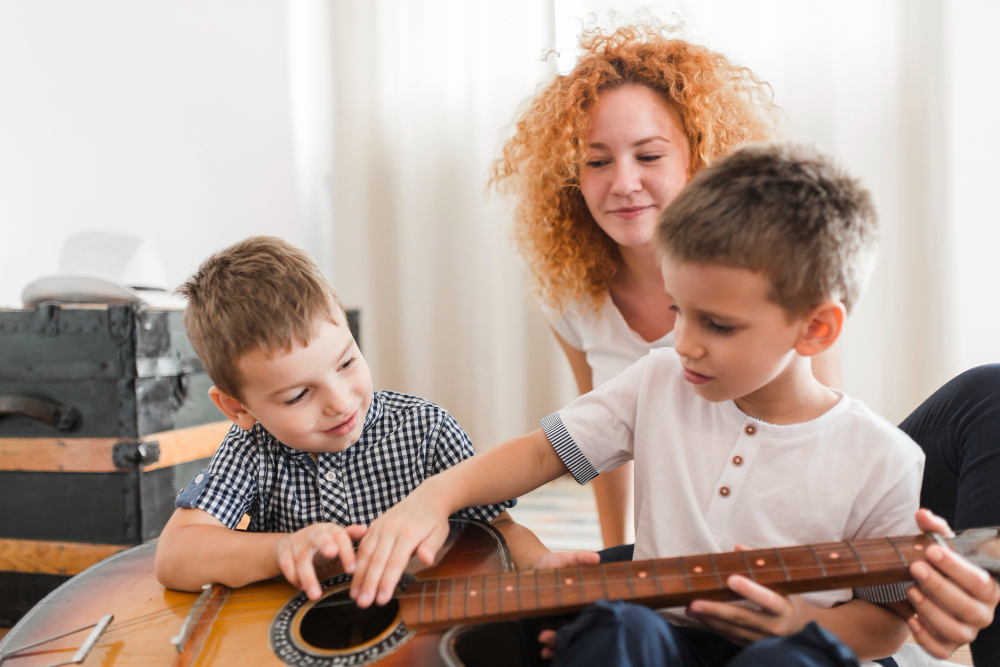How Music Lessons Can Shape Children’s Social and Emotional Growth
Music lessons can have profound impacts on children’s social and emotional development. Engaging in music education helps children enhance their emotional intelligence, develop empathy, and build social skills. Here are several ways music lessons contribute to this growth:
- Emotional Expression: Music provides a medium for children to express their emotions, helping them understand and process their feelings. Playing an instrument or singing can serve as an emotional outlet, promoting emotional stability and resilience.
- Empathy Development: Learning to play music in a group setting, such as an orchestra or band, requires children to listen to and understand the emotions conveyed by others. This fosters empathy as children become more attuned to the feelings and expressions of their peers.
- Social Skills: Participating in music lessons often involves collaboration and teamwork. Children learn to work together, communicate effectively, and support each other, building essential social skills. Group music activities teach patience, cooperation, and the ability to work towards a common goal.
- Confidence Building: Mastering a musical instrument or performing in front of an audience can significantly boost a child’s self-confidence. Achieving musical milestones instills a sense of accomplishment, encouraging children to tackle challenges and develop a growth mindset.
- Cognitive and Academic Benefits: Music education has been linked to improved cognitive abilities, including better memory, attention, and problem-solving skills. These enhancements can translate to better academic performance, as children apply these skills in other areas of their education.
- Cultural Awareness: Exposure to different musical genres and traditions fosters cultural appreciation and understanding. Children learn about diverse cultures and histories, broadening their worldview and promoting inclusivity and respect for others.
- Stress Relief: Playing music can be a powerful stress reliever. The act of making music can reduce anxiety and promote relaxation, providing children with a healthy coping mechanism for dealing with stress.
Practical Implementation
- Early Introduction: Introducing music lessons at a young age can maximize benefits. Early musical experiences can lay the foundation for lifelong social and emotional skills.
- Inclusive Programs: Music education should be inclusive and accessible to all children, regardless of background or ability. Schools and communities can play a crucial role in providing these opportunities.
- Parental Involvement: Parents can support their children’s musical journey by encouraging practice, attending performances, and showing interest in their progress. Positive reinforcement from parents can enhance the child’s enjoyment and commitment to music.
Conclusion
Music lessons offer far-reaching benefits that extend beyond musical proficiency. By fostering emotional expression, empathy, social skills, confidence, cognitive development, cultural awareness, and stress relief, music education plays a vital role in shaping well-rounded individuals. Encouraging children to engage in music lessons can provide them with valuable tools for navigating their social and emotional landscapes, ultimately contributing to their overall well-being and success.
For more information, visit the article here.
------------From our Sponsors------------









